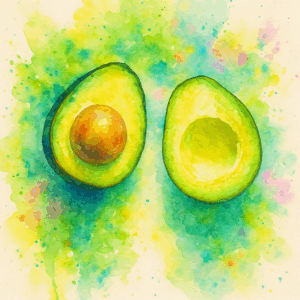Learn French with this clip from Les P’tits Bateaux. Find the full episode here. We do not own the content. The above audio sample and transcription is from Les P’tits Bateaux podcast. We do not own the content. Listen to the entire episode here. coucou les petites curieuses et curieux What’s opening up for you…
Start quiz, type what you hear, then join the conversation.
Did you find this one challenging or easy? Did you hear something diffferent? What surprised you? What levels did you complete? Comment below and share what’s opening up for you with this quiz.
Learn French with this clip from Les P’tits Bateaux. Find the full episode here. We do not own the content.
The above audio sample and transcription is from Les P’tits Bateaux podcast. We do not own the content. Listen to the entire episode here.
coucou les petites curieuses et curieux
What’s opening up for you with this clip? Comment below with what was surprising, easy, challenging and/or interesting.
The snippet in English
Find a translation of this snippet here, how much of this did you hear?
Et coucou les petites curieuses et les petits curieux, cœur sur vous !
Bonjour, je m’appelle Anouilh, j’ai huit ans, je voulais savoir à partir de quel âge nous commençons à aimer ?
Hello, curious little ones, I’m sending you all my love!
My name is Anouilh, I’m eight years old, and I wanted to know at what age we start to fall in love.
The above translation from Deepl
What does “coucou” mean?
Coucou is a very informal, playful “hi/hey,” an affectionate attention-getter for people you know well. Think warm, friendly, sometimes a bit flirty; use Bonjour/Bonsoir in formal settings.
Common in quick messages and speech: “Coucou ! Ça va ?”, “Coucou, c’est moi.” You’ll also hear faire coucou (= to wave): “Elle a fait coucou de la main.”
Culturally, it’s everywhere in France (especially online). In Québec, it’s understood but allô is more frequent; in Francophone Africa, it keeps the same light, friendly tone. Don’t mix it up with cocu (very different word).
What does “cœur sur vous” mean?
cœur sur vous (sending love to you / heart to you). Informal, internet/social-media expression built on the emoji/gesture of a heart. Feels warm, affectionate, slightly playful; not literal or formal.
Register/culture: influencer captions, comments, group chats; akin to bisous or love you guys energy.
Nuance: singular or plural “you” from context; softer than je t’aime, friendlier than cordialement.
Examples: Merci pour votre soutien, cœur sur vous. (Thanks for your support—love to you.) Cœur sur vous, la team, on continue ! (Heart to you, team—let’s keep going!)
Wait, it sounds like “chez Anouilh” … hein ?
I want to put “c’est Anouilh” or “chez Anouilh” here, but it does wobble a bit at the end. Almost like “je suis” and “c’est” got mashed together.
Is it possible that an unvoiced p sound, /p/ could disappear in “je m’appelle“?
In Adult Fast Speech : Highly Unlikely
(It is retained but reduced.) The /p/ is a strong consonant (a geminate ‘pp’). The schwa (the soft ‘e’ before it) is deleted first (elision). The stop closure remains, but the release may be less forceful (de-aspirated).
Child Slurred Speech : Possible
A very young child (under ~3 years) could delete it as part of a common consonant deletion phonological process. For older children, deleting this initial consonant in the syllable would be an atypical speech error.
What are you hearing?
Les P’tits Bateaux Podcast
Official synopsis: Les enfants posent des questions, des spécialistes leur répondent. Jeunes (et moins jeunes !) peuvent poser toutes les questions possibles et imaginables directement par message vocal via franceinter.fr, sauf pendant les vacances.
I recently discovered this podcast from InterFrance and love it. It’s kids posing questions and the host brings in experts to explain. And it’s aimed at young French kids, not French learners. That’s my favorite kind of content. Being for French kids is what makes it so good.
You’ve got real people (a kid, a host, and an expert), all speaking real French — no AI generated stuff here. The kid asks a question, and then an expert explains it in short, clear language. There’s a ton of repetition, natural turns of phrase, and just enough challenge to keep your ears working.
And because it’s meant for French-speaking kids, the adults naturally explain things simply but not condescendingly. You get exposed to rhythm, tone, interjections (bah, ben, alors), and full sentences — but also some real dialogue dynamics. And that’s gold if you’re trying to move from textbook filler to actually speaking and thinking in French.
Improving your French Listening Comprehension with Podcasts
On this site, fast spoken French is finally accessible to all levels. The tool break podcasts into short clips each set to transcription fill-in-the-blank practice. My favorite practice in class is always dictées. While they can seem overwhelming at first, the confidence boost and skills payoff for doing the work pays off. They’re perfect for anyone at any level, from advanced students to those just starting.
We use podcasts and our practice exercises to make it possible for anyone, anywhere to immerse in French with fun and ease. Join us and enjoy French, one short clip at a time. Let’s learn together!
Make the most of the site:
- Daily Podcast Listening: Start your day with a French podcast from our collection. Choose episodes that align with your interests to keep it engaging.
- Active Listening Practice: As you listen, try to pick out key phrases and vocabulary. Use our daily quizzes to test your understanding and reinforce learning.
- Repeat and Shadow: Listen to the same podcast segment multiple times. Try to mimic the pronunciation and intonation to improve your spoken French.
- Note-taking: Jot down new words or phrases you encounter. Review these notes regularly to enhance vocabulary retention.
- Reflect and Respond: After each episode, summarize the main points in French, either in writing or aloud. This helps in consolidating your learning and improving your expressive skills.
- Read More:
- True Beginner or A1 Learners: discover tips learning with podcasts at an introductory level.
- Discover all the podcast clips on FrenchIRL organized by level.
- Top Tips: Here’s how I make the most of my own site.
I created the French In Real Life project because I wanted to understand more than just my teacher and youtubers who cater to learners. I wanted to understand the French I hear in France. I hope you can benefit as much as I have. Become a supporting member for access to all clips.
What’s opening up for you?
Comment below with what’s opening up for you with this clip. What do you love about this? What was challenging? What was easy? Share your learning progress below!
Learn French with this clip from Les P’tits Bateaux. Find the full episode here. We do not own the content. The above audio sample and transcription is from Les P’tits Bateaux podcast. We do not own the content. Listen to the entire episode here. coucou les petites curieuses et curieux What’s opening up for you…
Start quiz, type what you hear, then join the conversation.
Did you find this one challenging or easy? Did you hear something diffferent? What surprised you? What levels did you complete? Comment below and share what’s opening up for you with this quiz.








